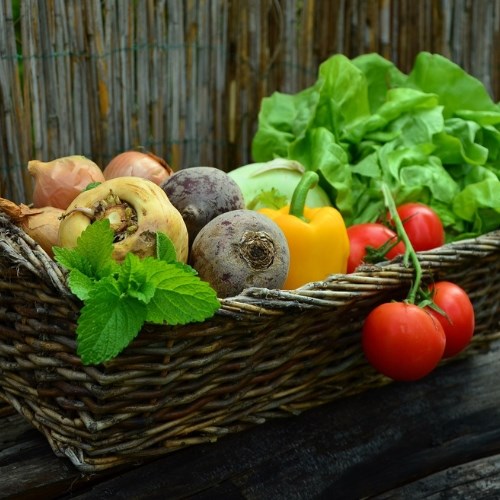
With Type 2 Diabetes on the increase across the world, how to try to prevent this happening is something we all need to know about. The development of the disease is thought to be due to both lifestyle and genetics, nature and nurture. On the nurture side there is something we all can do to help ourselves - balance our blood sugar levels.
A simple concept really on the surface, a steady amount of sugar (glucose) in our bloodstream is optimum. This amount can be affected by food of course but also by sleep[i], stress, movement, alcohol and smoking, and even dehydration. I am going to focus on food here.
When we eat carbohydrates, insulin is released from the pancreas to move excess sugar from the bloodstream into the cells, to be stored until needed. Some carbohydrates have more sugars than others (think sweets or white refined foods like crumpets). This can mean too much sugar in the blood and can result in a rollercoaster ride of initial energy & mood spikes, until later in the day there are energy & mood slumps. This is a ‘hanger’ – irritation, frustration, weariness - grabbing more carbohydrates - the cycle starts again. Over time this could lead to increased amounts of insulin needing to be released each time blood sugars are spiked. This could be insulin resistance, perhaps then even Type 2 Diabetes.
A recent study by Zoe[ii] explains why some people feel hungrier, especially for carbohydrates, even when not long eaten. Some people’s blood sugar levels dip more than other people’s after eating the same foods. Being able to measure our own glucose levels after eating is now really easy thanks to the variety of monitors out there. If you have any concerns about your blood sugar levels, this might be worth looking into.
In the meantime, how can you start to look after your blood sugar levels through how you eat? I would suggest it isn’t just what, it is also when, why, and how you eat: -
- White/sugary carbohydrates have a high ‘GI’ rating – sugar enters the bloodstream quicker and in greater quantities. So wholegrain carbohydrates (e.g. brown rice, wholemeal bread) or starchy vegetables (e.g. butternut squash, carrots), are steadier, higher fiber, choices.
- What you eat your carbohydrates with counts. So if you can’t ignore white carbohydrates, have them with fiber, healthy fats, and protein. E.g., swap the margarine and marmalade on your white toast for quality nut butter (protein & fat) and sliced apple (fiber). Getting enough healthier fats and proteins over a day is important.
- Fruits are so nutritious yet some, unfortunately, have high sugars and less fiber, e.g., tropical fruits. Eat them combined with other foods, such as seeds or yogurt.
- Being ‘low-carb’ is trendy, that doesn’t make it right for everyone. Carbohydrates are fuel, we do need them in the long run. But how much is right for us, and what type? It’s an individual thing. Listen to your body, and become aware of how food makes you feel. Keeping a simple food and mood record can really help – be carb conscious.
- How often we eat is also controversial. Is fasting right for everyone? Eating too often, or too infrequently will impact our mood and energy. Again, monitor your eating. (a phone app works well here).
- As a general guide, having non-starchy vegetables and fruits fill half your plate, will mean a more reasonable (rather than large) size portion of grainy/ starchy carbohydrates + provide loads of fiber for a happy gut.
- Drink plenty of hydrating fluids – preferably de-caffeinated. This helps reduce the concentration of sugar in our blood [iii], and helps prevent dehydration.
- We live in a world that tries to tempt us to eat unhelpful things, too frequently. The ‘Bigs’ spend £millions perfecting and marketing highly processed foods. Becoming aware of the power and pull of this marketing can help us feel kinder about what might initially seem being ‘weak-willed’.
- Yet trying to ban these foods doesn’t work. If I say ‘don’t eat croissants, you will want a croissant. Instead, a big portion of self-compassion is when you find it hard to change eating habits. Self-compassion = less stress & guilt = emotional stability = better choices in foods.
It is easy to make these recommendations, yet harder in this crazy mixed-up food world to put them into practice. Perhaps start with 1, and build up gradually. Any change is better than none and can build momentum.
Everyone deserves to do their best for their body, we only get one shot at this.
By @Cathy Houghton
[i] Bliwise DL, Greer SA, Scullin MK, Phillips LS. Habitual and Recent Sleep Durations: Graded and Interactive Risk for Impaired Glycaemic Control in a Biracial Population. Am J Med. 2017;130(5):564-571. doi:10.1016/j.amjmed.2016.12.007
[ii] https://joinzoe.com/post/nature-blood-sugar-dips
[iii] https://www.diabetes.co.uk/dehydration-and-diabetes.html